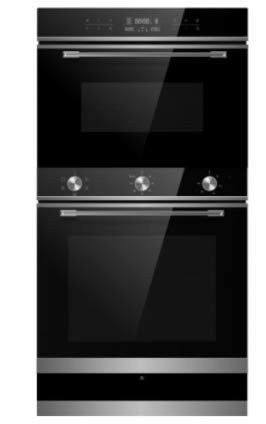The Comprehensive Guide to Sales Ovens: Understanding Their Importance, Types, and Best Practices
Sales ovens, a category of commercial cooking equipment, are crucial gamers in the culinary and foodservice industry. These appliances, designed to prepare food in big amounts effectively, are necessary in dining establishments, catering services, and other food establishments. This article looks into the importance of sales ovens, their types, and best practices for picking and utilizing them effectively.
What Are Sales Ovens?
Sales ovens, broadly specified, are cooking devices utilized mainly in commercial kitchen areas to prepare, bake, or heat different food items at scale. Their design permits them to deal with higher volume cooking compared to basic residential ovens. Provided the nature of food service, sales ovens frequently incorporate sophisticated technologies that promote speed, effectiveness, and even cooking.
Value of Sales Ovens in the Food Industry
Sales ovens play a pivotal function in food production for lots of reasons:
- Efficiency: Sales ovens can prepare food quicker and uniformly than traditional ovens, allowing chefs to prepare meals in less time.
- Consistency: With precise temperature controls, sales ovens ensure that the food is cooked uniformly whenever, preserving quality throughout countless servings.
- Adaptability: Many sales ovens can manage numerous cooking methods including baking, roasting, broiling, and even steaming, making them appropriate for varied menus.
- Energy Savings: Modern sales ovens are typically designed to be energy-efficient, reducing operational expenses for businesses.
Kinds Of Sales Ovens
The market provides a variety of sales ovens, each fit for specific cooking requirements and kinds of food. Here are the most common types:
| Type of Oven | Description | Best For |
|---|---|---|
| Convection Ovens | Utilize a fan to circulate hot air, ensuring even cooking. | Baking and roasting items. |
| Combi-Ovens | A mix of convection and steam cooking, providing versatility in cooking methods. | Varied menus requiring steaming and baking. |
| Conveyor Ovens | Use a moving belt to constantly cook food, ideal for high-volume operations. | Junk food and pizza. |
| Deck Ovens | Feature different compartments (decks) that can be individually controlled, offering high performance. | Craftsmen bread and pastries. |
| Rotisserie Ovens | Created to slowly roast meat on a spit, supplying tender and juicy outcomes. | Roasted meats. |
Choosing the Right Sales Oven
Choosing the proper sales oven for a specific company requires factor to consider of several factors:
- Volume Needs: Assess the volume of food that needs to be prepared. Greater volume means selecting conveyor or combi-ovens.
- Menu Diversity: Understanding what kind of dishes will be prepared can assist the selection procedure. For visit the site , a bakeshop might need a deck oven, while a diner might benefit from a convection oven.
- Area Availability: Measure kitchen area to guarantee the ovens fit appropriately and have required ventilation.
- Spending plan: Commercial ovens can differ considerably in cost, so establish a spending plan that considers long-lasting functional savings.
- Energy Efficiency: Opt for ovens that have energy rankings to keep energy expenses manageable.
Best Practices for Using Sales Ovens
Effectively running a sales oven includes more than simple usage. Here are some best practices to bear in mind:
- Regular Maintenance: Schedule routine maintenance to clean and examine the performance of the oven. This makes sure longevity and performance.
- Pre-heating: Always pre-heat the oven to the wanted temperature before positioning food inside for constant cooking outcomes.
- Make use of Thermometers: For accuracy, use an oven thermometer to guarantee that temperatures remain constant, specifically for baking.
- Follow Cooking Times: Adhere to recommended cooking times based upon the kind of food being prepared. Adjustments might be essential for various ovens.
- Prevent Overcrowding: Ensure enough space around food products in the oven to permit appropriate air blood circulation.
The Future of Sales Ovens
As technology advances, so do the capabilities of sales ovens. Developments such as wise technology, energy-efficient designs, and enhanced security features are becoming more prominent. These developments promise to boost cooking efficiency while also meeting sustainability goals.
FAQs about Sales Ovens
Q1: How do I tidy my sales oven?
A: Regular cleaning involves removing any food debris, cleaning down surfaces with non-corrosive cleaners, and following specific cleansing recommendations from the maker.
Q2: What's the life expectancy of an industrial oven?
A: Typically, a properly maintained business oven can last anywhere from 10 to 20 years, depending upon usage and maintenance.
Q3: Can sales ovens be used for baking?
A: Yes, many types of sales ovens, specifically convection and deck ovens, are particularly designed for baking a variety of products.
Q4: Are there energy-efficient choices for sales ovens?
A: Yes, a number of manufacturers offer energy-efficient models that decrease energy intake without sacrificing performance.
Q5: How typically should I perform maintenance on my sales oven?
A: It's recommended to conduct regular upkeep checks monthly or quarter, depending upon use levels. In addition, a thorough examination needs to occur at least every year.
Sales ovens are indispensable in the contemporary culinary landscape. Their capability to prepare large quantities of food efficiently makes them necessary for dining establishments, catering services, and other food facilities. By understanding the numerous types, picking the best oven, and adhering to best practices, food service businesses can enhance their cooking processes, improve their offerings, and eventually delight their clients with exceptional culinary creations.

